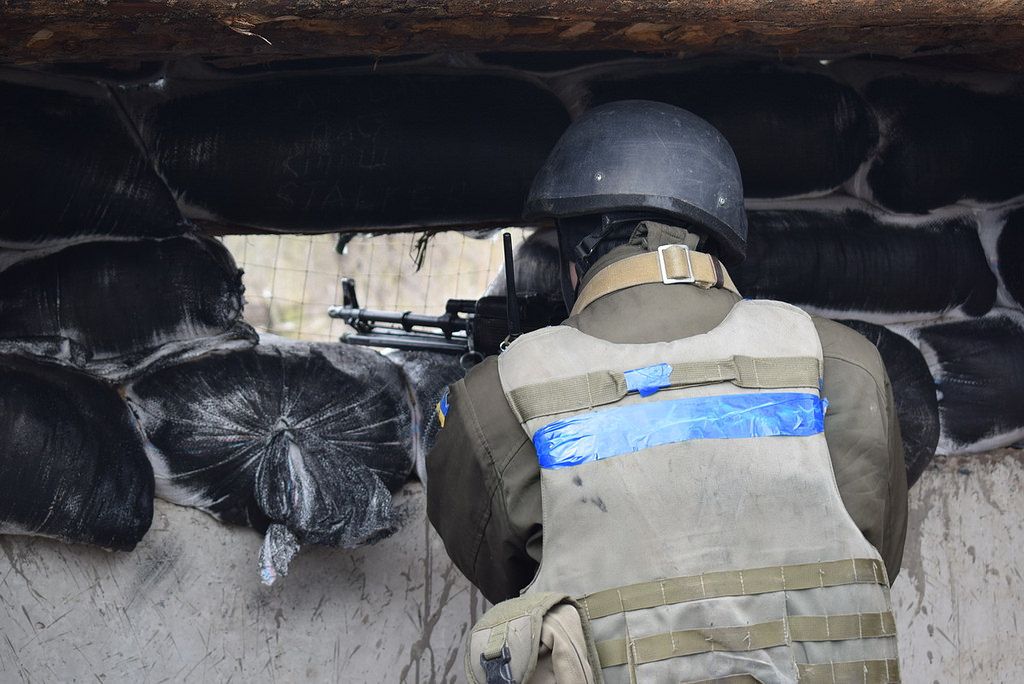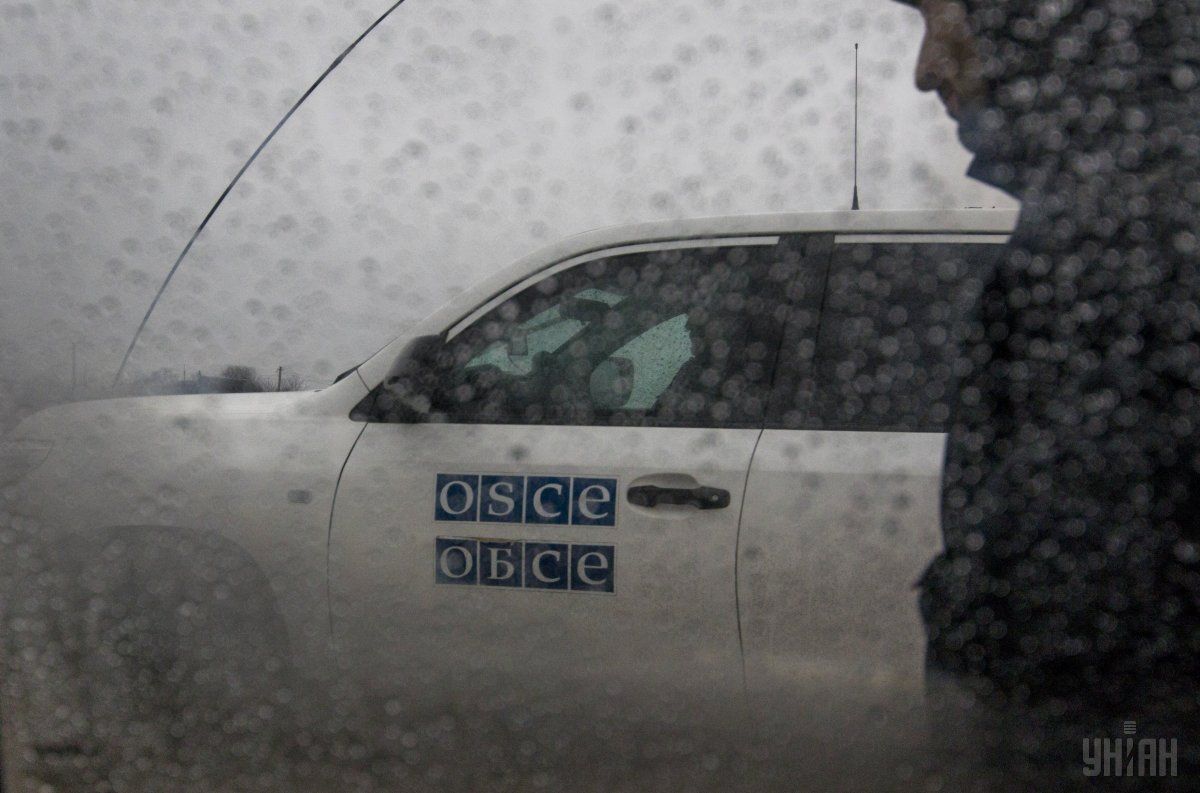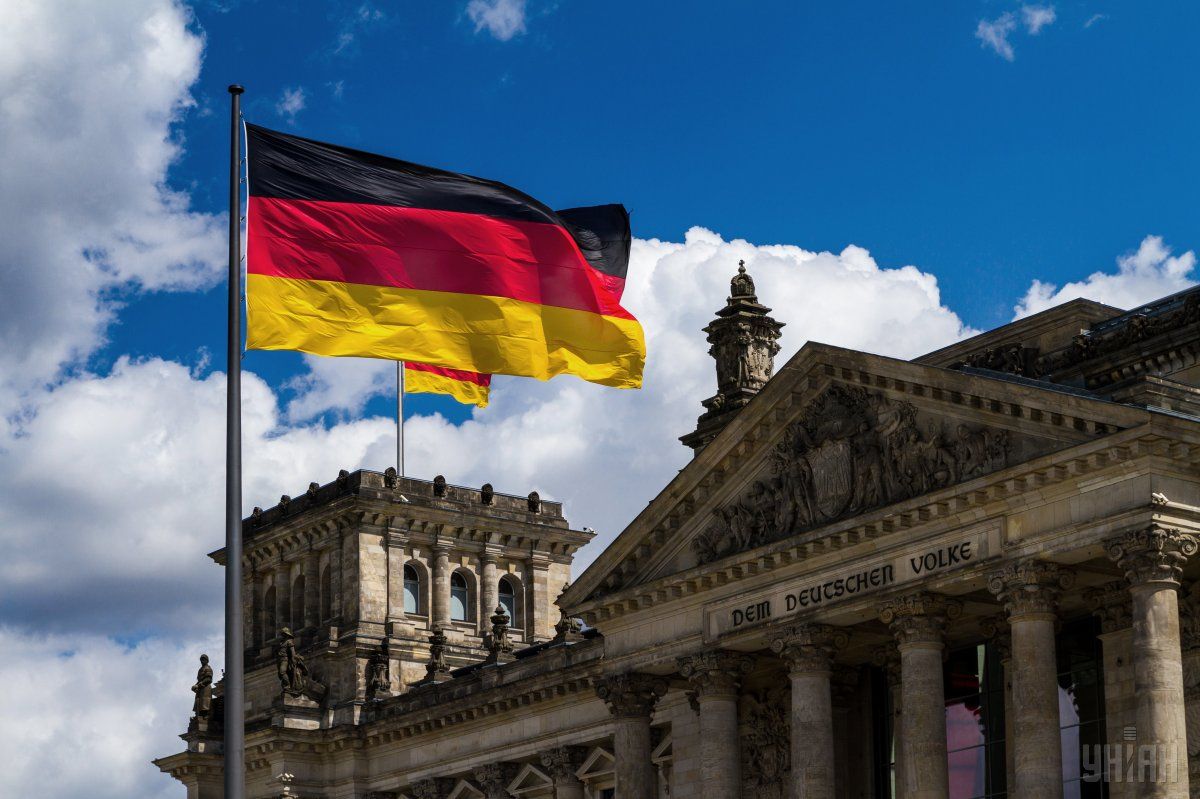Russia's hybrid military forces attacked Ukrainian army positions mainly in the Mariupol and Donetsk sectors, with three Ukrainian soldiers reported as wounded in action (WIA) as of 18.00 on September 30, according to the press service of the Anti-Terrorist Operation (ATO) Headquarters.
Photo from the Ukrainian Defense Ministry
"Since the early hours of Saturday morning, the militants have opened fire three times from various types of grenade launchers and small arms on the Ukrainian defenders in the south-eastern outskirts of Avdiyivka. Two Ukrainian soldiers were wounded amid shelling at 12:45 local time. Pro-Russian mercenaries used the same weapons near Butivka coal mine at night. One Ukrainian soldier was wounded as a result of the enemy attack on the ATO forces near the village of Pisky," the report said. In the Mariupol sector, the situation remained tense near the village of Vodiane, where the occupiers used grenade launchers and large-caliber machine guns three times. The Ukrainian strongholds near the villages of Bohdanivka and Shyrokyne came under enemy fire as well. "Simultaneously with the shelling of Ukrainian positions, which confirms the enemy's non-compliance with peace agreements, the militants continue to impede the process of restoring Donbas infrastructure. At the moment, the anti-damage protection of the dam at the phenolic plant in the village of Novhorodske, as well as gas pipeline branches in the town of Maryinka and the village of Krymske requires urgent repairs. The facilities are in close proximity to the contact line," the ATO HQ said. At the same time, failure to perform reconstruction work could lead to an aggravation of the humanitarian situation and contamination of adjacent soils on both sides of the contact line.
www.unian.info
Photo from the Ukrainian Defense Ministry
"Since the early hours of Saturday morning, the militants have opened fire three times from various types of grenade launchers and small arms on the Ukrainian defenders in the south-eastern outskirts of Avdiyivka. Two Ukrainian soldiers were wounded amid shelling at 12:45 local time. Pro-Russian mercenaries used the same weapons near Butivka coal mine at night. One Ukrainian soldier was wounded as a result of the enemy attack on the ATO forces near the village of Pisky," the report said. In the Mariupol sector, the situation remained tense near the village of Vodiane, where the occupiers used grenade launchers and large-caliber machine guns three times. The Ukrainian strongholds near the villages of Bohdanivka and Shyrokyne came under enemy fire as well. "Simultaneously with the shelling of Ukrainian positions, which confirms the enemy's non-compliance with peace agreements, the militants continue to impede the process of restoring Donbas infrastructure. At the moment, the anti-damage protection of the dam at the phenolic plant in the village of Novhorodske, as well as gas pipeline branches in the town of Maryinka and the village of Krymske requires urgent repairs. The facilities are in close proximity to the contact line," the ATO HQ said. At the same time, failure to perform reconstruction work could lead to an aggravation of the humanitarian situation and contamination of adjacent soils on both sides of the contact line.
www.unian.info






